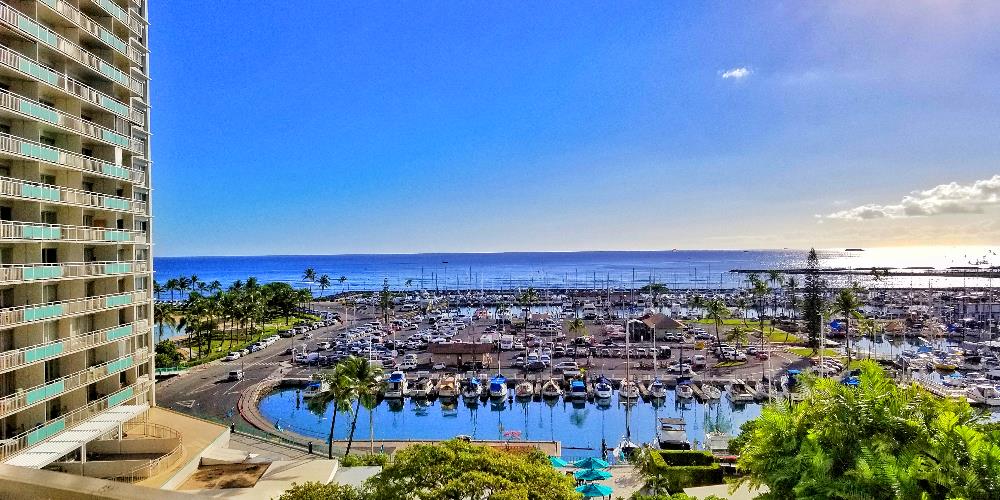Hawaii Real Estate – The Sellers’ Obligation To Disclose
– Sellers of Hawaii real estate are obligated to disclose any “fact, condition or defect, past or present, that could measurably affect the value of the property for sale to a reasonable person.” Realtors representing sellers require their clients to complete the Seller’s Real Property Disclosure Statement.
Sometimes sellers take ‘facts, conditions or defects’ for granted, taking their disclosure obligation lightly. Sellers may have gotten used to certain facts, conditions or defects and consider them less relevant. Perhaps the seller’s basement only floods during occasional torrential rains, about once every few years or so. The seller might argue: “It is not really an issue because it only happened a couple of times a long time ago.” — What? Think again!
If you are selling your home, try to imagine yourself as the buyer. Wouldn’t you want to know about the occasional flooding before buying? Of course, you would. Just because you, the seller, have become numb to the issue does not mean it is irrelevant to the buyer.
Here are two recent real-life examples where sellers almost forgot to disclose:
1) Condotel Dedication For Residential Use
In March 2017, the city adopted Ordinance 17-013 which allows owners to dedicate their condotel for ‘residential use.’ Owners that apply for the dedication are able to lower their property tax rate from 1.39% of assessed value (hotel/resort rate) to 0.35% of assessed value (residential rate for use as a principal residence). The lower tax rate takes effect the next fiscal year starting July 1st in the year after the September 1st filing deadline. Depending on when the owner files the application in relation to the annual Sept 1st filing deadline, the date the dedication takes effect could be 10 to 22 months after filing!
The issue is that the seller’s application to ‘dedicate the property for residential use’ restricts the owner’s rental options to rental terms of 30 consecutive days or more per tenant. A condotel ‘dedicated for residential use’ can no longer be rented as a short-term vacation rental.
Some sellers forget to disclose that they filed for the dedication months earlier. Unless the seller discloses the dedication for residential use, the buyer might not realize this until after closing.
If the new owner violates the use restriction, the dedication is canceled retroactive including the full tax year prior to the violation. The buyer will be charged back taxes including the full fiscal year prior to the violation, equal to the difference in the tax rate, plus a 10% penalty.
Example: You bought a $1Mill condotel with a 5-year residential dedication. On January 1st, 2021 you start short term vacation renting of the unit. The ‘cost’ in back taxes and penalty could be: $11,040 for full fiscal 2019 ($13,900 – $3,500 = $10,400 + 10% = $11,040), plus $4,620 for half of fiscal 2020 (13,900 – $3,500 = 10,400 : 2 = $5,200 + 10% = $5,720). The total ‘cost’ for 12 + 6 months back taxes plus penalty could be $16,760! Oops, surprise.
2) Potential For Future Development
The Ilikai is one of my favorite Waikiki condotels. We explained what makes the Ilikai special and its investment potential in previous articles. On 11/21/2017, the Ilikai AOAO mailed a letter to all Ilikai owners notifying them that the state of Hawaii has announced their intention to ‘redevelop’ a vacant parking lot on the ocean side of the Ilikai. Click here to read what is known so far today.

Recently an Ilikai seller was rather casual by not disclosing the notification letter to the buyer. The seller argued that the state’s intention to develop has been “public knowledge for years already and no specific plans have been approved. Therefore the issue wasn’t relevant!” — What? Think again!
Remember, the seller is required to disclose any “fact, condition or defect, past or present, that could measurably affect the value of the property for sale to a reasonable person.” The seller has the obligation to disclose the receipt of the AOAO letter to the buyer. Neither the issue being public knowledge nor the lack of specifics exempts the seller from this obligation. Regardless of what the seller might think, the potential impact of redevelopment on future Ilikai values is crucial for the buyer to assess before finalizing their purchase.
Conclusion
The examples above seem rather obvious and should be common sense to anybody. Nevertheless, some sellers’ casual attitude towards detailed and accurate disclosure is real and therefore needs to be addressed. When in doubt, sellers should err to over-disclose.
‘Facts, conditions or defects’ are in the eye of the beholder. Sellers of Hawaii properties need to disclose what is prudent for the buyer to know. Sellers who do not responsibly disclose are exposing themselves to potential litigation. It’s not worth the risk. Buyers pay big bucks for Hawaii properties and would not want to be stuck with surprise discoveries that the seller had known but failed to disclose.
Let us know what you think. We love to hear from you! Reciprocate Aloha! Like, Share and Comment below. ~ Mahalo & Aloha

Is this development still happening?
Aloha Shelly Garza!
Regarding the Ilikai Harbor Development…
The question is “when?” not “if.”
The answer is, when it becomes feasible for the State of Hawaii to move forward with developing to the highest and best use of the land consistent with the existing zoning and use restrictions.
In a way, developing that lot is overdue for the last 60+ years. It is prime ocean front that collects diddly parking fees at best.
Be assured, sooner or later the property will make the news again.
But don’t fret the FOFDs:
https://www.hawaiiliving.com/blog/blocked-views/
Call us when you are ready to buy.
~ Mahalo & Aloha